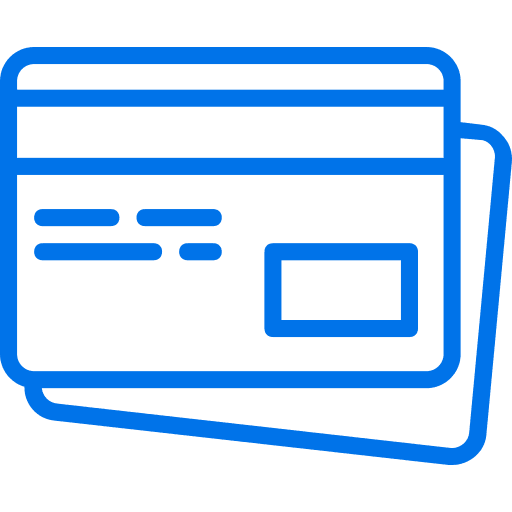Compare other products
We currently don't have that product, but here are others to consider:
How we picked theseFinder Score for bank accounts
We assess multiple product features for transaction accounts from over 100 providers and assign each product a score out of 10.
Key takeaways
- If you’re registered as a partnership, small business, company, sole trader or trust in Australia, you will need to open a business bank account.
- Keep an eye on monthly account fees and fees for transactions made in branch or overseas.
- Some business bank accounts come with access to online accounting software and tools.
What is a business bank account?
A business bank account is a transaction account that is specifically designed for businesses rather than for personal use. You can use your business bank account to pay for day-to-day business expenses, pay invoices and staff wages and also to receive payments from clients and customers.
How to compare and find the best business bank account
Here are a few key things to consider when picking a business bank account:

The monthly account fee
Some business bank accounts charge monthly fees, in exchange for more features and services than what's offered on a personal account. If you don't need larger transaction limits, staff-assisted cash deposits or specialised features, look for a business bank account with no monthly fee.

The branch network
Some banks don't have any physical branches in Australia. If you need to make staff-assisted transactions in a bank branch, make sure the bank account you choose has branches in convenient locations for your workplace or home.

The online portal
Does the account come with access to an online portal to help with your business reporting and tax obligations? Also, looking for an account that's already integrated with accounting software like Xero can help you manage your business admin.

Debit cards
Is there a limit to how many debit cards you can request, or is there a fee for each additional card? Look into this if you want to have multiple debit cards for multiple employees.

Staff-assisted transactions
If you regularly receive cash payments you should look for a business bank account that doesn't charge you to deposit cash. It's worth comparing the cost per transaction, with an account that charges a flat monthly fee for unlimited staff-assisted transactions to see which option would save you money.

The overdraft facility
This is a feature that's not widely offered with personal bank accounts, but it can be offered with business accounts. If your business needs an overdraft facility, look for an account that offers this.

International fees
If you travel a lot for work and plan to use the debit card to withdraw cash or make purchases overseas, look for a business bank account with low or no international ATM and foreign transaction fees.

"I was always on the lookout for a business account that had no account keeping fee - it didn’t seem reasonable to me that I can have a personal transaction account and pay nothing for it, but because the account was marked for business use, I had to pay $10 per month.
I can understand a fee if the business transacted hundreds of payments each week, but all of our payments flowed through a third party app, so there was only one deposit and a few dozen payments a month. So, I shopped around and settled on a bank that offered business transaction accounts for free."
Who needs a business bank account?
If you’re registered as a partnership, small business, company, sole trader or Trust in Australia then you need to open a business bank account, and cannot use a personal account. This is to ensure you meet your business tax obligations.
Not only is it a legal requirement, but small business bank accounts are also helpful to keep your business income separate from your personal finances.
Benefits of a business bank account
Business bank accounts offer a range of benefits, but some of the best include:
- Designed for businesses. Business transaction accounts are designed with businesses in mind, rather than everyday consumers. They include features that are beneficial to businesses, such as an overdraft facility.
- Keep your business money separate. Having a dedicated business bank account ensures you keep your business finances completely separate from your personal finances.
- Often integrated with business services. These accounts often include added support for businesses, such as seamless integration with accounting software to reduce the admin burden.
- Specialised online platform. Often banks will offer a dedicated online portal for business bank customers that’s tailored to their needs. For example NAB Connect is NAB’s online business banking tool that allows customers to manage remuneration payments and offers customised transaction reports.
- Larger transfer limits. Business bank accounts often allow for larger daily transfer and transaction limits than personal bank accounts to accommodate large invoice payments and staff wages, etc.
- Easier at tax time. With all your business expenses organised separately from your personal finances, it’s easier to manage your tax obligations at the end of the financial year. Your business expenses will be clearly identifiable in their own account.
- Manage your cash flow. With all your business expenses, payments and earnings in the one account, it’s easier to analyse your day-to-day business cash flow.
- Multiple people can use the account. You can opt for a joint business account if you’d like another person such as a business partner or co-owner to have access to the same account.
How to apply for a business bank account
- Apply online. Once you've chosen an account, complete the online application on the bank's website (or you can also go in branch if the bank has branches).
- Add your details. Fill in your name, age, address, contact details and residency status. You'll also need to provide details of your business, such as the business name, address, TFN and ABN.
- Verify your identity. Once the bank has verified your identity with your driver's licence, passport or other forms of ID, your account will be opened instantly.
- Fund your account. Transfer some money into your new bank account from another account or deposit cash into the account via a bank branch, ATM or Post Office. You'll soon receive your debit card in the mail.
Frequently asked questions
Sources
Ask a question
24 Responses
More guides on Finder
-
Zeller Business Savings Account
Check out Finder's review of Zeller's Business Savings Account.
-
Auswide Bank Business Access Account
The Auswide Bank Business Access Account is a business transaction account that lets you earn interest. This account has no minimum balance requirement and a low monthly fee.
-
Suncorp Business Premium Account
The Suncorp Premium Business Bank Account is a business bank account with no monthly fees, unlimited fee-free transactions and a linked Visa Debit Card.
-
Suncorp EFTPOS terminals
Suncorp offers a range of EFTPOS solutions for businesses with flat rate pricing for all transactions.
-
PayNuts EFTPOS terminals
PayNuts offers a range of EFTPOS solutions, with some charging no transaction fees and no terminal rental fees.
-
Judo Bank business term deposit
Earn a competitive, fixed interest rate on your business term deposit with Judo Bank.
-
Zeller Transaction Account
This is a business account with linked physical and virtual debit cards, Xero integration and expense categorisation.
-
Prospa Business Account
This is a business bank account with no monthly fees or minimum balance requirements, and a complimentary Prospa Visa Business Debit Card.
-
Airwallex Global Account
Your business can get paid in multiple currencies, and spend directly in those currencies to save on currency conversion fees.
-
Business term deposit rates
Find the best business term deposit rates to help improve your bottom line.

Hi I’m looking for bank for business banking and international transfers at good margin and exchange rates
Chris
Hi Chris,
Unfortunately we can’t recommend specific products as it really depends on your personal financial circumstances, business financials and preferences. You can compare your options for business banking on the page above and you can click “more info” on the tables for each review to find out specific details.
This page on business transfers might also be useful https://www.finder.com.au/international-money-transfers/business-transfers
Hope this helps,
Elizabeth
I have setup a business with a ABN. I will need to make salary payments and incur expenses on behalf of the business from this account. I’d also like a credit card for expenses made for this business, as I’d like the business to earn points. Which business account would be best?
Hi Mads, we aren’t able to offer you any personal financial advice or product recommendations. You can compare business credit cards here: https://www.finder.com.au/credit-cards/business-credit-cards, or if you’d like some personal advice for your business we suggest speaking with a financial planner or accountant. Thanks!
Why don’t you have a phone number as I wish to speak to someone?
Hi Adam,
Finder doesn’t have a phone number to call. However, you can leave a comment or question for us, or chat with us. All you need to do is click on the chat button found in the lower right corner of our website.
Please note that we are a comparison website. If you’re trying to call a specific bank, please visit their website to find their contact details.
I hope this helps.
Thanks,
Alison
I am after the best bank account for small business with mobile eftpos and low fees.
Hi Carlie,
Thank you for reaching out.
You can compare business bank accounts from this page. Majority of the banks are already offering mobile eftpos such as NAB and CommBank. You can also try to contact other banks who are listed on this page to verify if they offer mobile eftpos too.
There’s also a table above that summarises the fees per bank account. You can refer to the part that says “Finder’s featured business bank accounts”. From there you will see that NAB Business Everyday Account ($0 monthly fee option) offers $0 on monthly account fee, ATM withdrawal fee and minimum deposit. But feel free to check other banks too as well the T&Cs so you can decide who among them will work best based on your preference and business needs.
Hope this is helpful.
Kind Regards,
Mai
Which bank is the best for business every day transaction account
Hi Tayla,
Thanks for your visiting our page on your business bank account needs.
The best bank account to use for you depends on your business needs and daily transactions. One that will coincide with the financial activities you’re business has on a daily basis. The part on our page that says “How to compare business bank accounts” will guide you to choose the best account for you.
As a friendly reminder, read up on the terms and conditions and product disclosure statement of the account before you open one and contact the bank should you need any clarifications.
Hope this helps! For any other inquiries, feel free to send us a message anytime.
Kind regards
Nikki